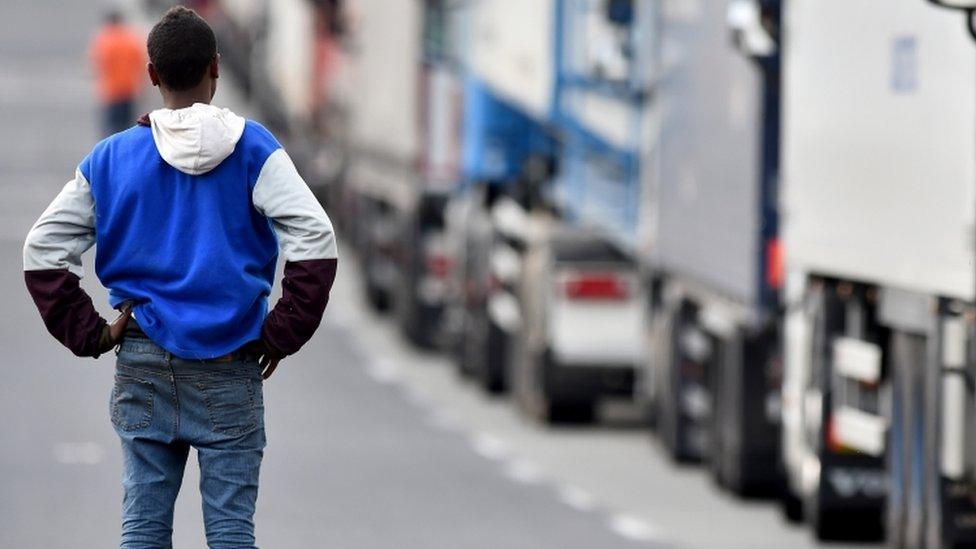Calais migrant crisis: Fences 'push migrants elsewhere'
- Published
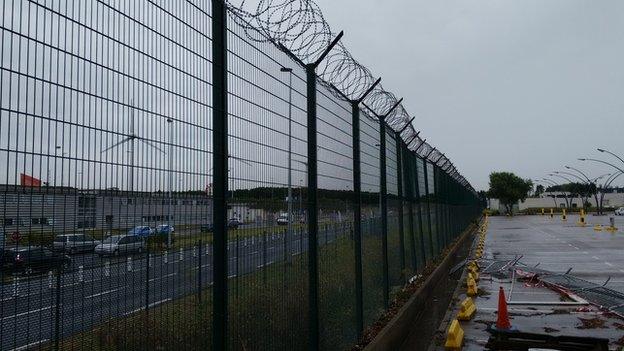
Fences built to stop Calais migrants crossing to the UK will simply push the problem elsewhere, French police have said.
Pascal Aerts, who leads the officers policing migrants in Calais, told the BBC fences were a "short-term solution" and that migrants would simply move to places where security was weaker.
The UK government has spent £7 million on putting up new fencing.
Ministers say everything possible is being done to protect the UK's border.
Mr Aerts said fences were "an immediate response to an immediate problem" but they would only work until "migrants who can no longer get past them move towards other places where they can get through".
He said the fences would lead to a "displacement of the problem", possibly to ports in the Netherlands and Belgium.
The UK government was doing "everything it can to help our efforts", he told the BBC's Tomos Morgan and Alexandra Heal.
But he said: "The solution is not in Calais, the solution must be political. The solution will lie in international agreement."

At the scene
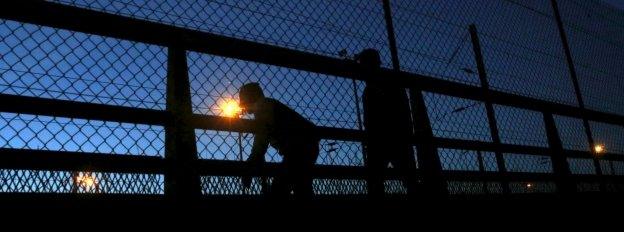
Alex Morrison, BBC News
Travel down any Calais street, day or night, and you'll probably see the police.
They're mostly in vans, often parked on roadsides or bridges, just waiting.
When the busy town goes quiet after dark, growing groups of migrants appear near the fences that cut across the countryside.
Police vans leave their flashing lights on and there's an eerie atmosphere as migrants try to find ways past them - and the double fences - to the port or Eurotunnel train line.
There are flash points. Tear gas is used and migrants complain of rough treatment - one told us a policeman "pushed me with his van".
Even with all this security many migrants breach the Calais defences, and now the police say the issue may simply move elsewhere.

He said people-smuggling networks relied on help from some lorry drivers, and probably some British people.
Migrants in the Calais camp this week have told the BBC security has become much tougher in recent weeks, and many say they have stopped trying to cross.
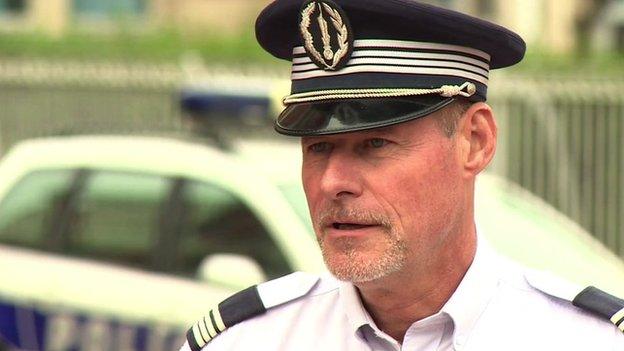
Pascal Aerts said a political solution was needed to the crisis
But others say they will reach Britain or die trying.
Eritrean sisters Mhrt, 22, Migb, 17, and Tina, 16, said it was now "very dangerous" to attempt a crossing.
But Migb said: "We are trying every day. We wait until dark and then we try to cross."
Speaking about the issue of trafficking, Mr Aerts added: "There exists a network of smugglers, sometimes with the compliance of lorry drivers, sometimes with the compliance of locals.
"I don't have proof that they're English but we know perfectly there do exist links between the traffickers and the receivers in Great Britain, and with the traffickers who work in France."
- Published7 August 2015
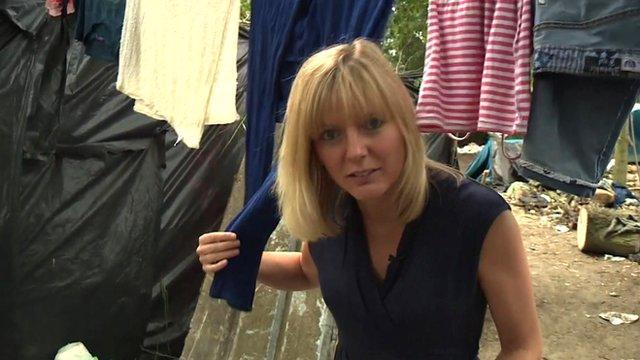
- Published1 August 2015
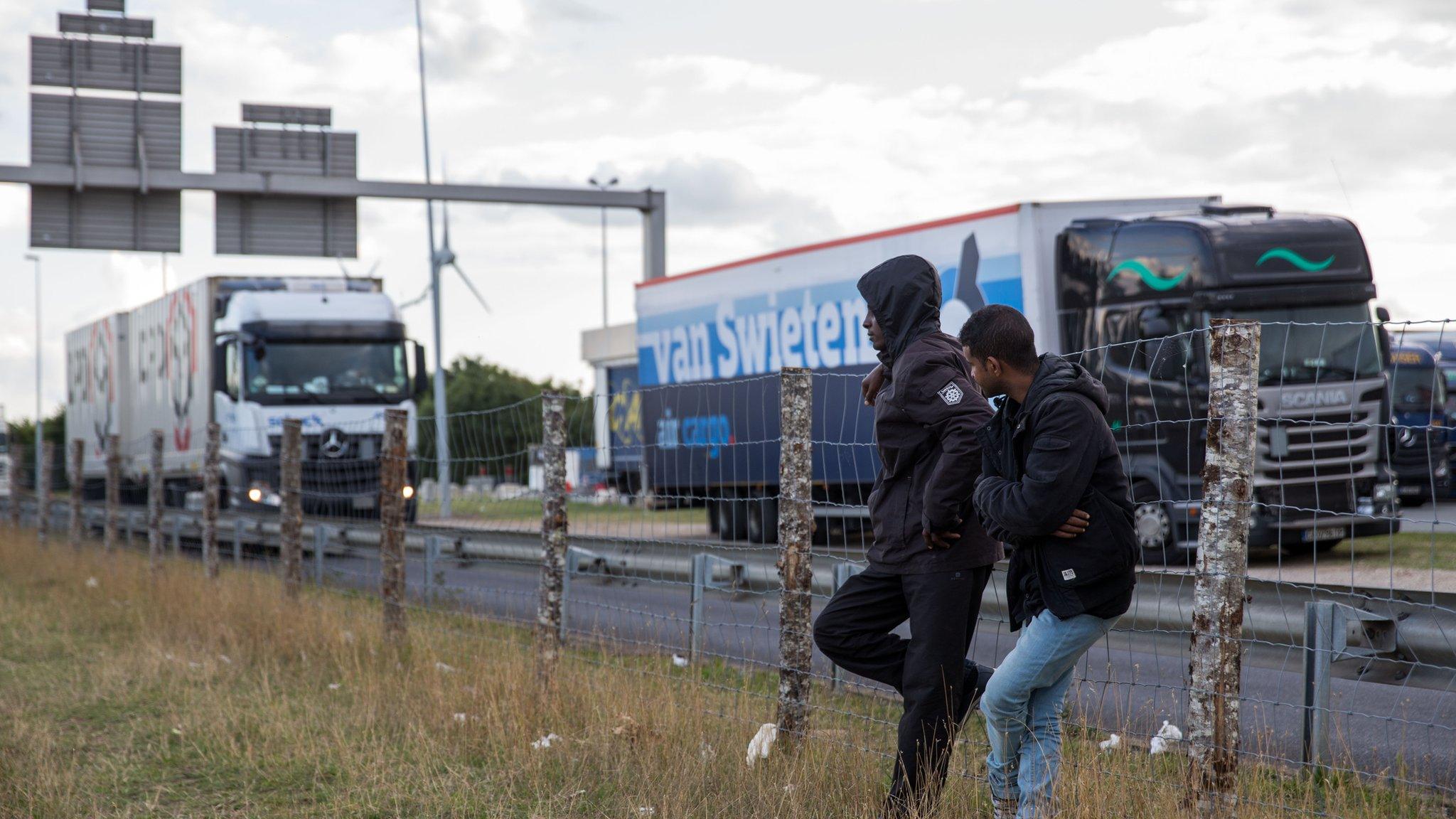
- Published8 August 2015
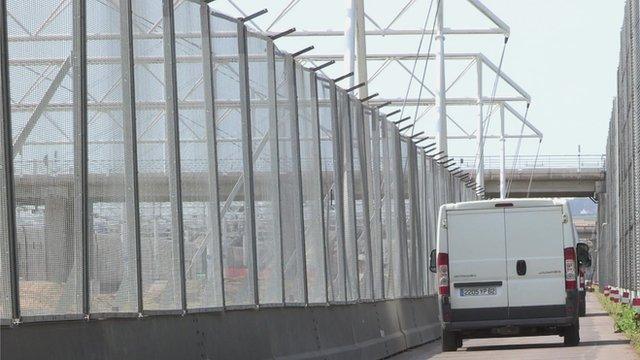
- Published3 October 2015
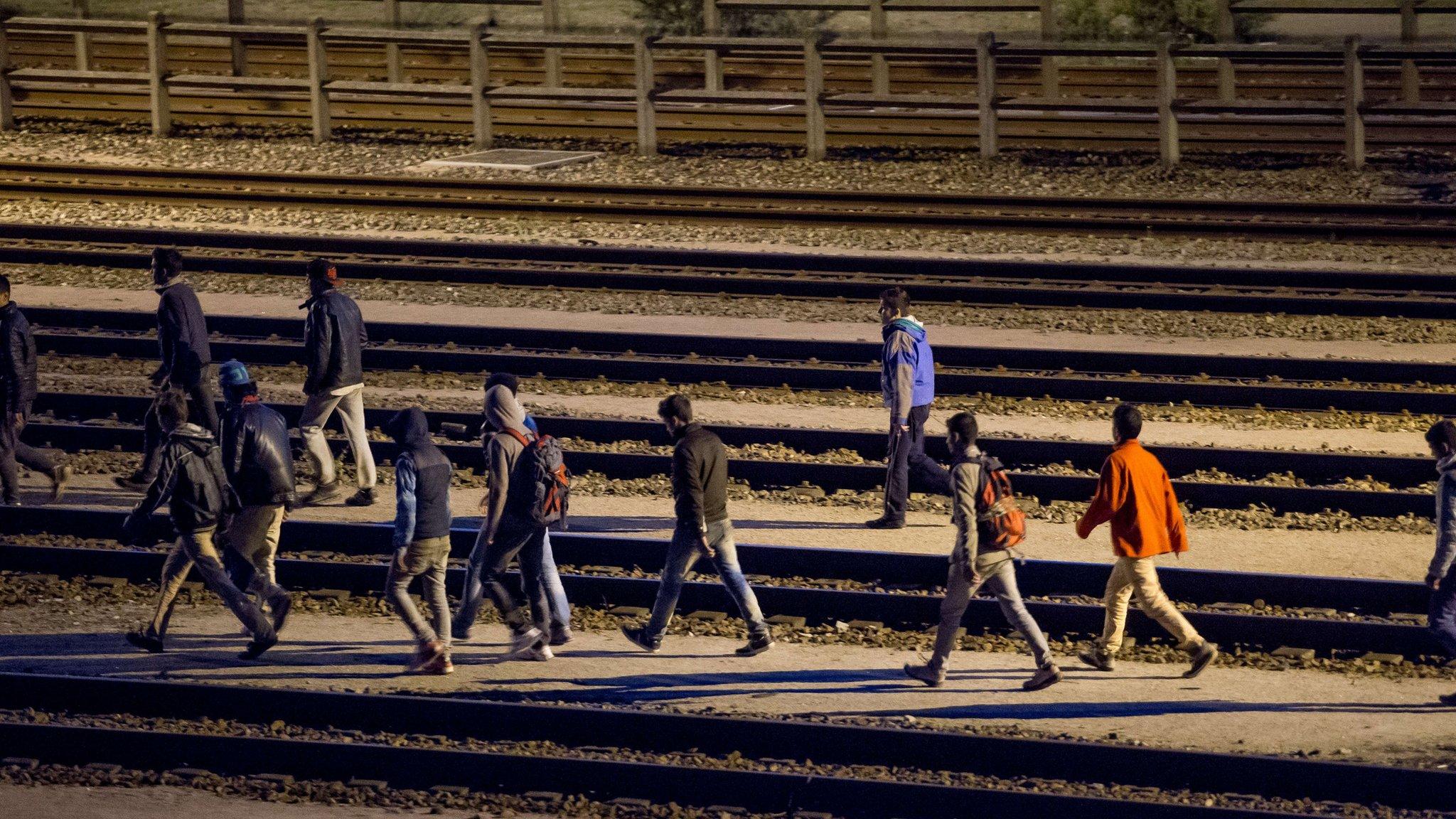
- Published7 July 2015
